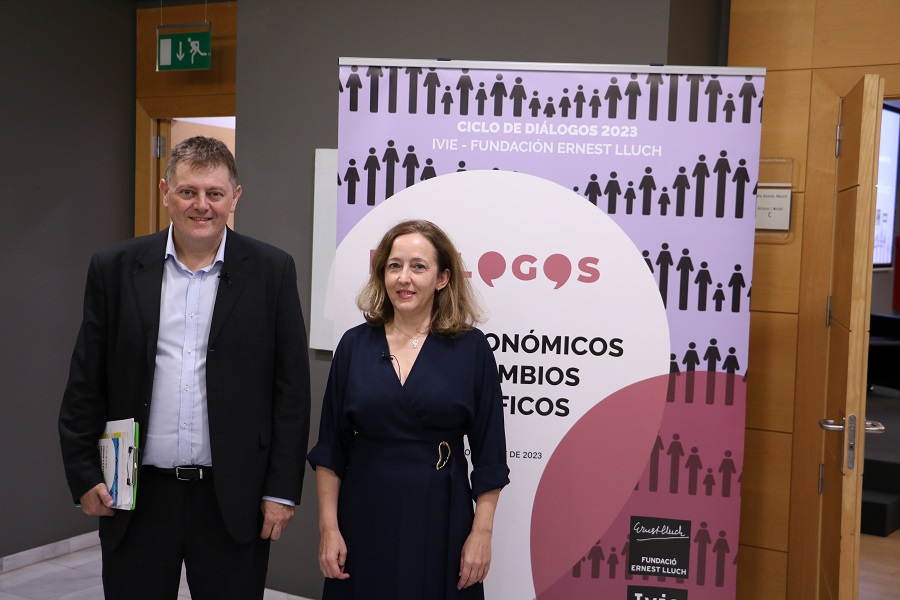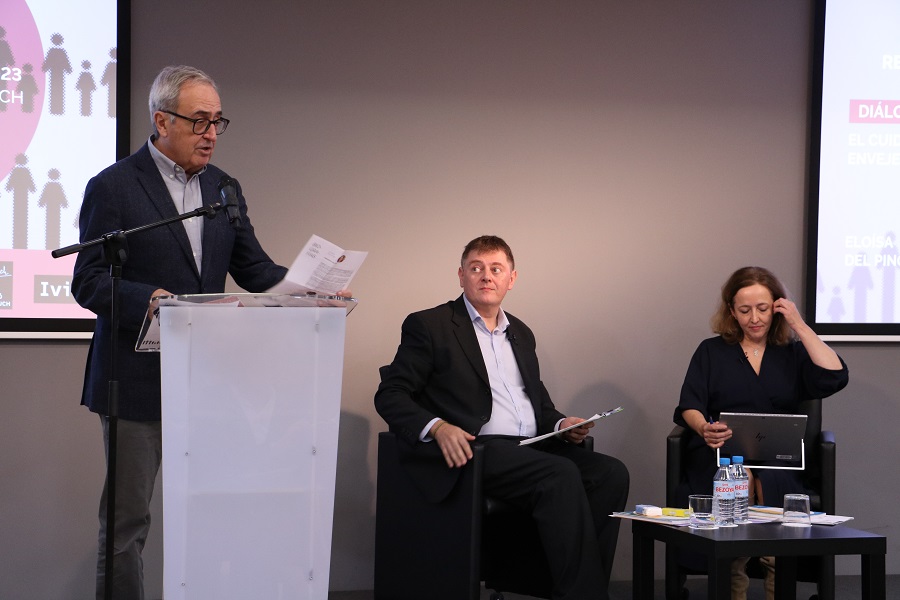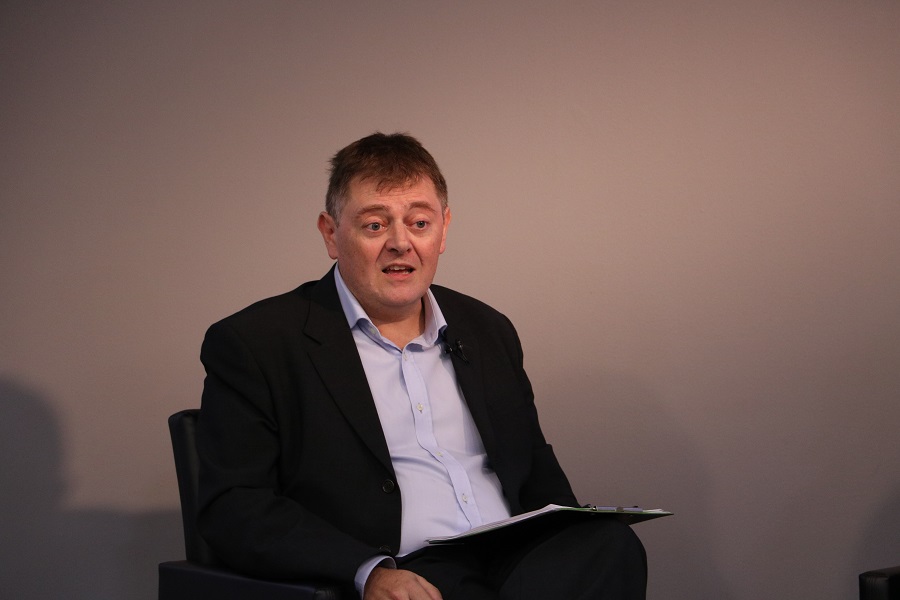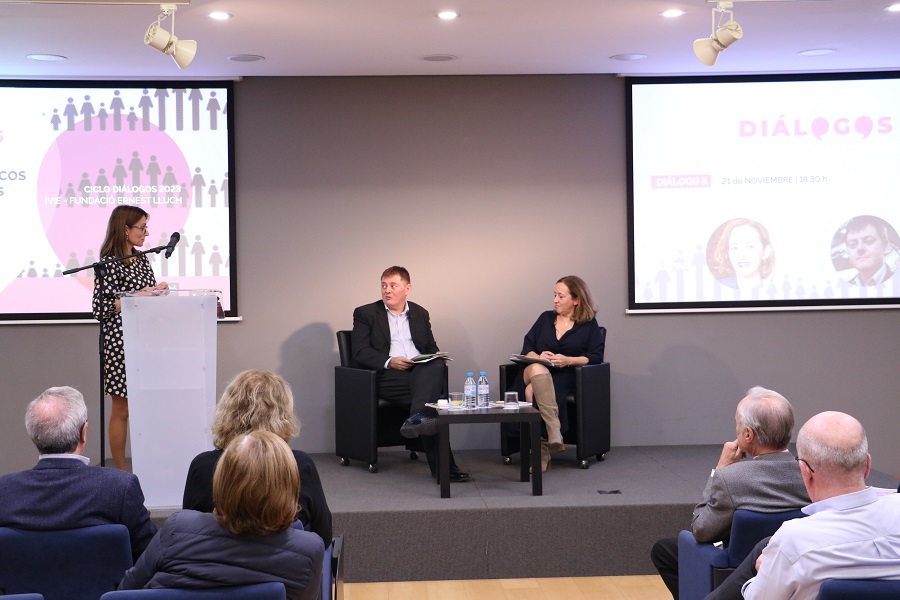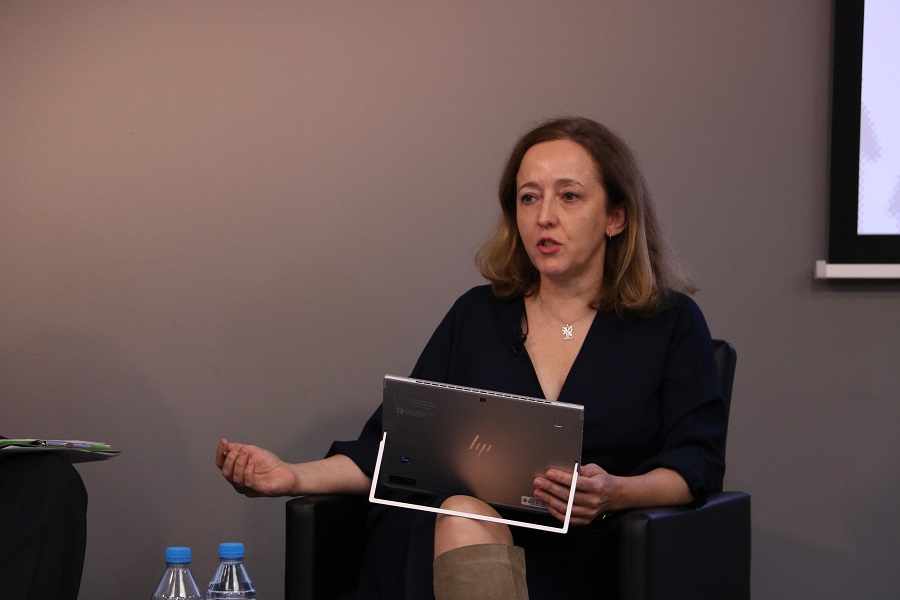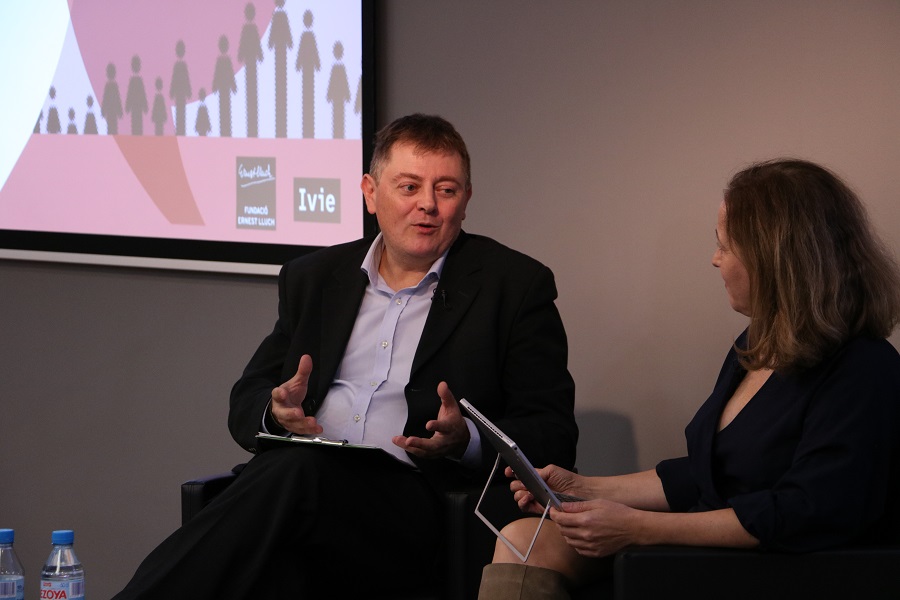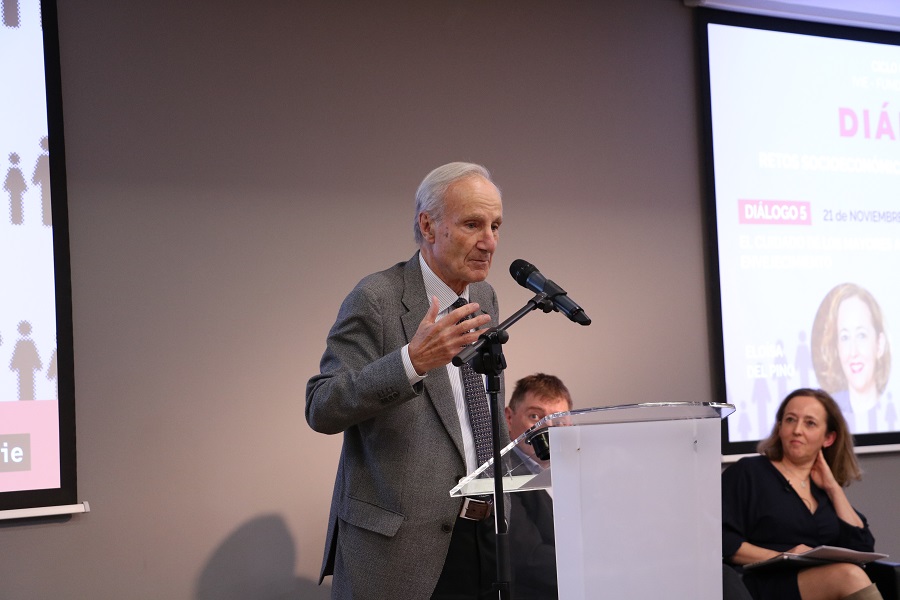Esta web utiliza cookies para que podamos ofrecerte la mejor experiencia de usuario posible. La información de las cookies se almacena en tu navegador y realiza funciones tales como reconocerte cuando vuelves a nuestra web o ayudar a nuestro equipo a comprender qué secciones de la web encuentras más interesantes y útiles.
News
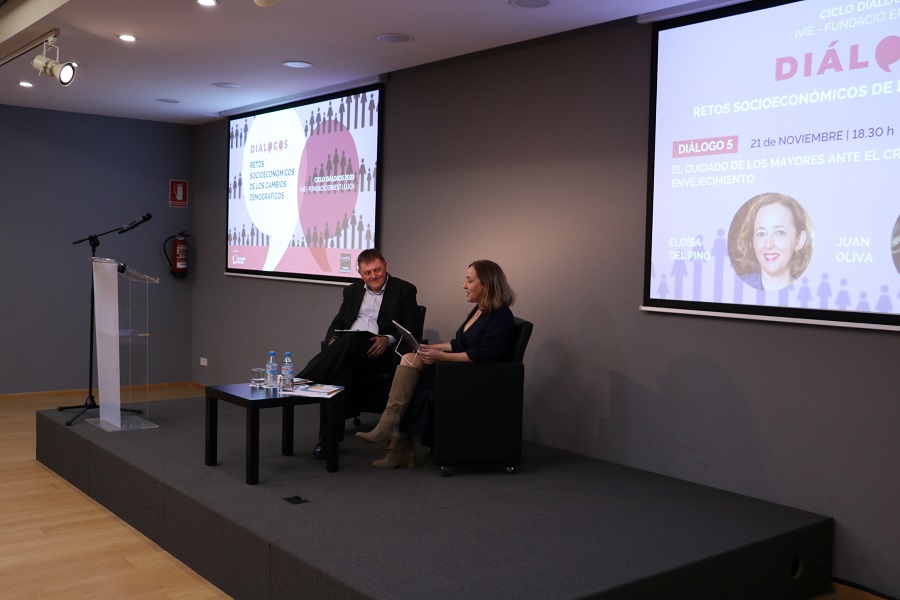
Spain should pursue the active aging approach and senior residential care model that is already in force in northern Europe
The President of the Spanish National Research Council (CSIC), Eloísa del Pino, and University Professor and health economics expert, Juan Oliva, discussed the pros and cons of Spain’s Law on Dependency in the final dialogue of the 2023 series organized by the Ernest Lluch Foundation and the Ivie
It wasn’t until recently that Spain realized the vital role of the State in the care of its elderly, when it passed the Law of Dependency in 2006, a provision that has existed in Nordic countries since the 1960s. With this idea in mind, the dialogue began between Eloísa del Pino, President of the Spanish National Research Council (CSIC), and Juan Oliva, University Professor and health economics expert, on caring for the elderly in the face of an increasingly aging population. This event concluded the series organized by the Ernest Lluch Foundation and the Ivie on “Socioeconomic Challenges of Demographic Change”, held in Valencia between October 19 and November 21.
According to the president of the CSIC, Spain’s healthcare system was created to handle acute illnesses, which are now chronic due to longer life expectancies. Thus, changes are needed in order for it to remain effective. She believes that it is essential to coordinate health and social care for the elderly so it is adequate at all times and not only when they are ill.
The two speakers highlighted the progress made in Spain with the approval of the Law of Dependency, bringing the country closer to the senior care systems that exist in most developed European countries. “Currently, we have 1.9 million benefits, of which 60% are in the form of services, and another 40% are economic, something that was not initially anticipated but was brought about as a result of the crisis. Objectively, the law has been very helpful in the care of the elderly,” said the health economics expert. However, both agreed that the law still presents some limitations, mainly related to funding. “Spending on dependency is nearly 1% of GDP, but it still requires support from the family,” said Del Pino. In this sense, Juan Oliva affirmed that care from the family is fundamental and irreplaceable, “if we estimate the 7,000 million hours of care provided by families, the budget for dependency would have to be 7 or 8 times more”.
According to the speakers, Spain should aim for an “active aging” of its population, striving to keep the elderly independent and in their own homes, as long as possible, with the help of new technologies such as “telecare”. Currently, only 20% of people over the age of 65 need care, while 80% do not. The aim is to steadily lower the proportion of elderly people who are dependent.
Juan Oliva added that the senior residential care models that are now being developed in Europe and to which Spain should strive toward are those of residence homes with common areas and care services, combined with private rooms to preserve their autonomy. “The adoption of this model must be gradual because there are currently over 400,000 beds in conventional nursing homes.” Similarly, Eloísa del Pino, expressed her confidence in the increase in healthy life expectancy, in which the real health care system will only have to take place at the end of a person’s life, when they can no longer be independent.


